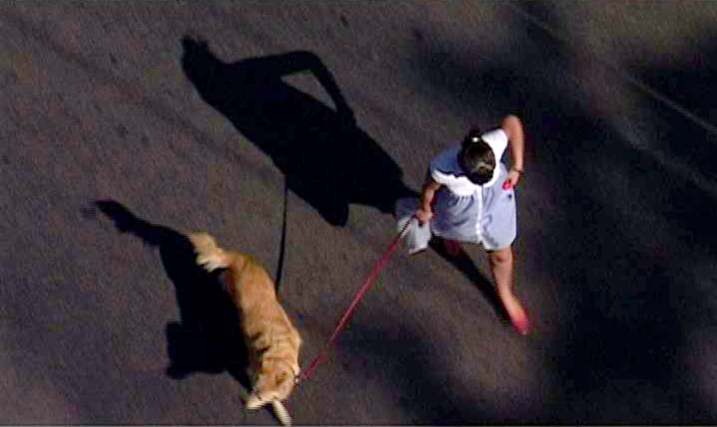How does one transform during war? Subjective and genuine childhood memories of the siege of Sarajevo are combined with excerpts from guilty pleas from the International Criminal Tribunal for the former Yugoslavia. Although in 2012 it is exactly 20 years ago the siege of Sarajevo began, the story doesn’t mention the actual context, becoming timeless and universal. DAYA CAHEN was born in Amsterdam. She is passionate about photographs, videos and video installations and her artistic work revolves around propaganda, indoctrination and mass psychology.
Ioana Mischie: WE LIVED OUR ORDINARY LIVES recreates a striking deeply personal answer, while exploring the impact of a war on an “ordinary” woman. Why did you choose this complex provoking subject (war) and this specific main character, and how did you develop the research around it?
Daya Cahen: Both my Jewish parents lived through WOII when they were children and this experience transformed their lives. Therefore I have always been fascinated by the influence of war. I grew up with the notion that the world can change in a day and you never know at what end of the line you will end up. That a society can turn against any group of people. Investigating how developments of exclusion, xenophobia and fear of otherness can arise within society is the starting point for all my work.
When I was invited to come to Sarajevo, I decided to make a work exploring the transformation a child goes through during wartime. My intention was to interview several people from different ethnic backgrounds, but once I met Latifa Imamovic, who had never talked about her war experiences before, I knew that she would be the focus of my film. She is a young, muslim girl in her twenties, who had the exact same age both my parents had when they experienced their war, from 5 to 10 years old.
Ioana Mischie: Stylistically similar to a symbolist poem, by flirting simultaneously with visuals, sounds and olfactory senses – which recreate memories of the war, this documentary seemed for me also a synesthesic experiment. It is subjective and objective in the same time as genuine childhood memories of the siege of Sarajevo are combined with excerpts from guilty pleas from the International Criminal Tribunal for the former Yugoslavia. Why did you choose to combine these two views? And why did you choose “We lived our ordinary lives” as the title for this journey into one’s life?
Daya Cahen: When I was researching, I came across the guilty pleas from the perpetrators of the International Criminal Tribunal for the Former Yugoslavia and was immediately fascinated by the texts. You hear the perpetrators apologize for their crimes and at the same time make excuses. “I was young, I just lost a child, alcohol influenced my actions”. I wanted to combine these texts with the memories of Latifa, to emphasize how timeless and universal the situation really is. They did not expect for this to happen, and yet it did. Therefore I made a sound composition in which excerpts from the statements tumble over each other and form a collective voice of guilt.. It also emphasizes the position of the individual within the masses, which plays an important role in my work.
The title is a quote from one of the guilty pleas and it emphasizes for me that these were ordinary people that in unordinary circumstances turned into something that is hard to imagine. Why did they make these choices while others did not?
Ioana Mischie: Conceived as a trychotomic portrait of a woman, you play with the form and content of filmmaking. The split screen heightens the feelings of the central character: leitmotif-details like the obsessive nail biting or the inconstant blinking betray the fragility of a woman who struggles to recollect her memories of the life lived during the war. What motivated you as a filmmaker to choose the “split screen” format and to keep sometimes even moments of silence or simple gestures, without necessarily filling them with narrative information?
Daya Cahen: For me the splits creen is a form that I often use, because I also make multi-screen video installations. It gives me the opportunity to use different images together, that enhance, contradict or comment on each other. It gives me the chance to combine different ways of storytelling and play with the narrative form. In this work I asked Latifa the same questions three times, before, during and after the war, without ever mentioning the actual context of the war. In this way I wanted to tell the story of transformation and not the story of the actual war I the former Yugoslavia. Within the silent moments, the nailbiting, the small movements in her face, the blinks of the eye, the story reveals itself. They become a narrative in itself.
Ioana Mischie: Paradoxically, without showing any war scene, war becomes the invisible main character of the film. Do we still witness wars in our contemporary society, or it is rather a dated event, how do you perceive this issue?
Daya Cahen: I think this story can happen anywhere, in any form, at any given moment, unfortunately, and is still happening.
Ioana Mischie:You initially studied photography at the Gerrit Rietveld Academy in Amsterdam. What motivated you to approach filmmaking, and moreover documentary filmmaking?
Daya Cahen: In my work as an artist I use different kind of media, like photography, video, sound- and video installations. My work has links with documentary filmmaking, but also with photography and installation, so for me the labels are not really important. Video gives me the opportunity to combine and oppose different levels of storytelling, but some stories for me are better told in photographs. It depends on what I am working on.
Ioana Mischie: What are your future aims as a filmmaker?
Daya Cahen: I often use a personal perspective to explore social and political developments within society and I would like to continue doing that.
More about WE LIVED OUR ORDINARY LIVES.


